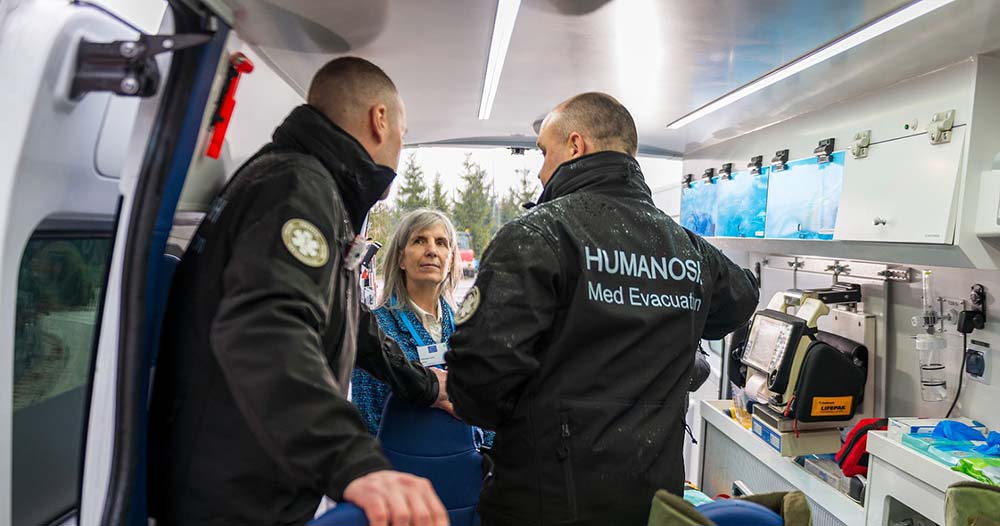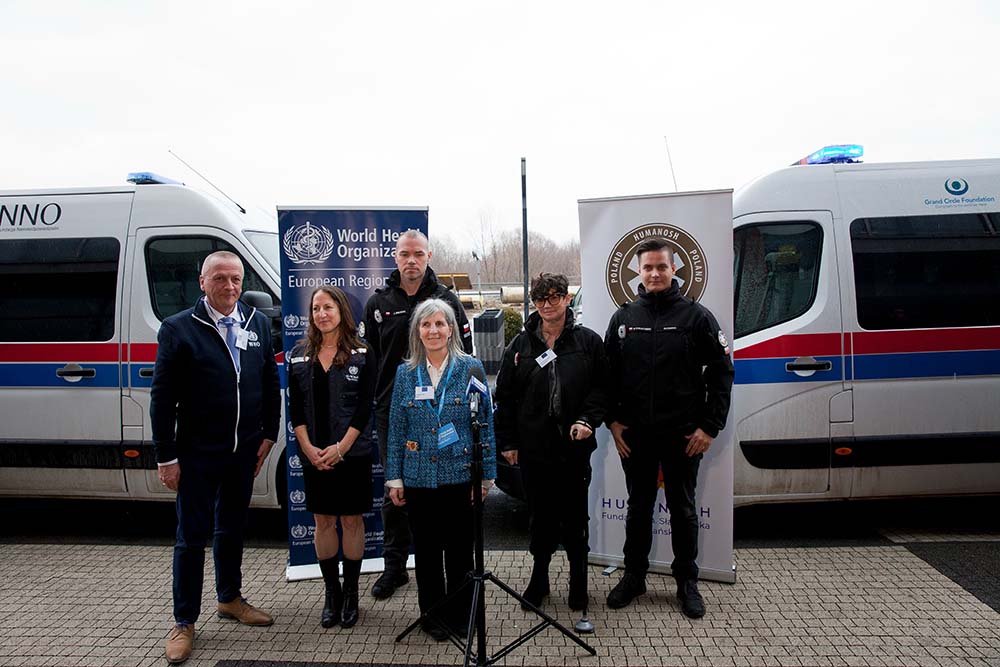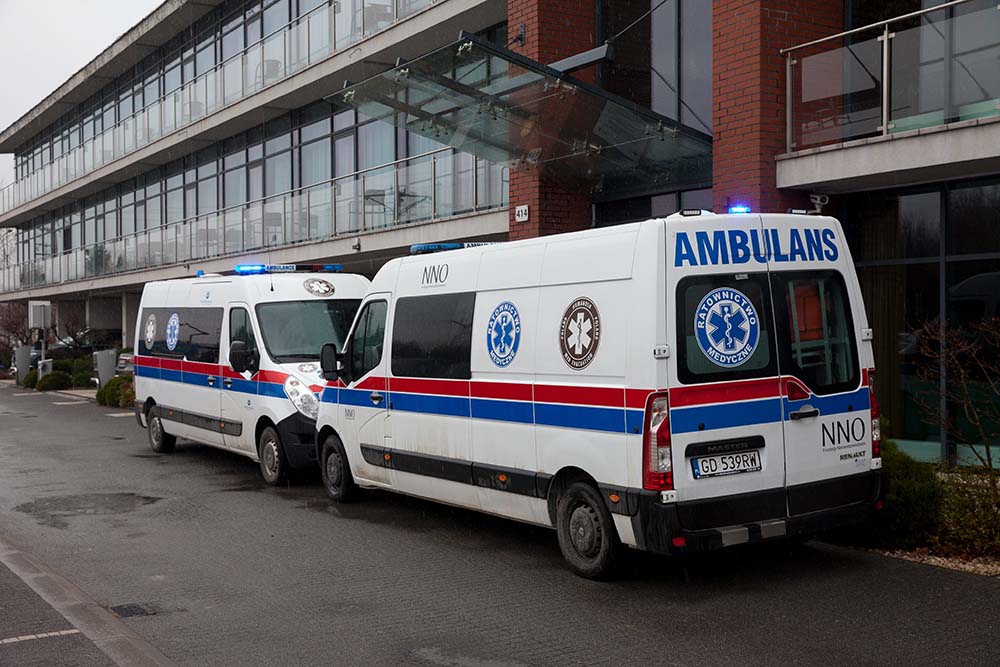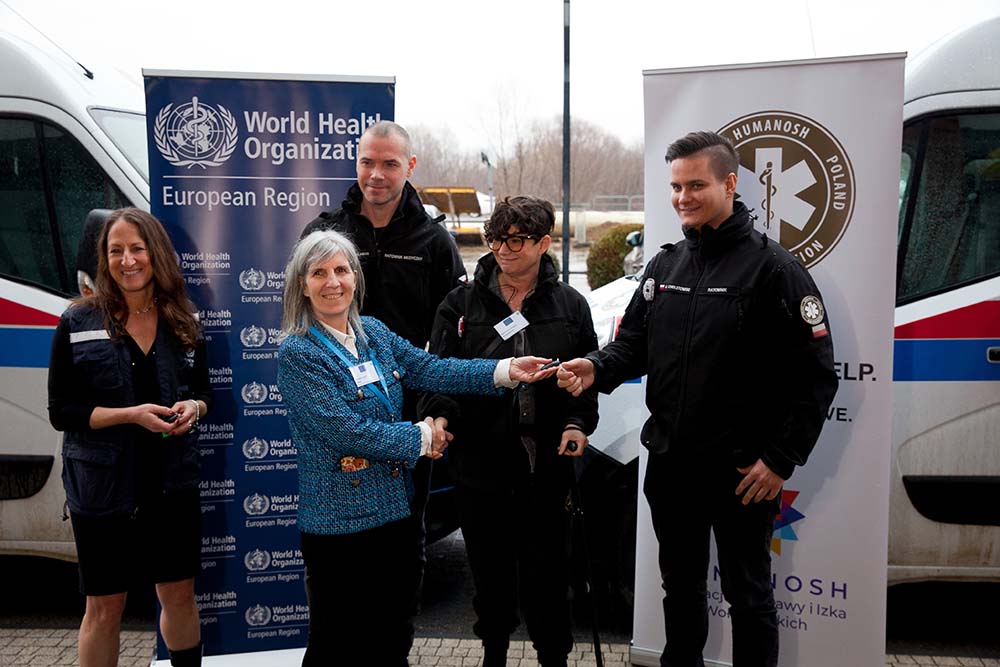- Home
- Magazines
-
Newsletters
- 19 July 2024
- 12 July 2024
- 5 July 2024
- 28 June 2024
- 14 June 2024
- 7 June 2024
- 31 May 2024
- 24 May 2024
- 17 May 2024
- 10 May 2024
- 3 May 2024
- 26 April 2024
- 19 April 2024
- 12 April 2024
- 22 March 2024
- 15 March 2024
- 8 March 2024
- 1 March 2024
- 23 February 2024
- 16 February 2024
- 9 February 2024
- 26 January 2024
- 19 January 2024
- 12 January 2024
- 22 December 2023
- 1 December 2023
- 24 November 2023
- 10 November 2023
- 3 November 2023
- 27 October 2023
- 20 October 2023
- 13 October 2023
- 6 October 2023
- 29 September 2023
- 22 September 2023
- 15 September 2023
- 8 September 2023
- 25 August 2023
- 18 August 2023
- 11 August 2023
- 4 August 2023
- 28 July 2023
- 21 July 2023
- 14 July 2023
- 7 July 2023
- 30 June 2023
- 23 June 2023
- 15 June 2023
- 2 June 2023
- 26 May 2023
- 19 May 2023
- 12 May 2023
- 5 May 2023
- 28 April 2023
- 21 April 2023
- 14 April 2023
- 6 April 2023
- 31 March 2023
- 24 March 2023
- 17 March 2023
- 10 March 2023
- 3 March 2023
- 24 February 2023
- 17 February 2023
- 10 February 2023
- 3 February 2023
- 27 January 2023
- 13 January 2023
- 22 December 2022
- 15 December 2022
- 9 December 2022
- 2 December 2022
- 25 November 2022
- 18 November 2022
- 11 November 2022
- 4 November 2022
- Advertising
- Subscribe
- Articles
-
Galleries
- AOSH Firexpo 2024
- Midvaal Fit to Fight Fire 2024
- WoF KNP 2023 Gallery
- TFA 2023 Gallery
- DMISA Conference 2023
- ETS 2023 Gallery
- Drager Fire Combat and Rescue Challenge 2023
- AOSH Firexpo 2023
- Midvaal Fit to Fight Fire
- WC IFFD 2023
- NMU 13th Fire Management Symposium 2022
- JOIFF Africa Conference 2022
- ETS 2022 Gallery
- TFA 2022 Gallery
- IFFD 2018
- SAESI
- TFA
- WRC 2018
- WRC 2019
- A-OSH/Securex
- IFE AGM 2019
- ETS Ind Fire Comp Nov 2019
- ETS Challenge 2021
- Drager launch
- Drager Fire Combat and Rescue Challenge 2022
- TFA
- Contact
- Home
- Magazines
-
Newsletters
- 19 July 2024
- 12 July 2024
- 5 July 2024
- 28 June 2024
- 14 June 2024
- 7 June 2024
- 31 May 2024
- 24 May 2024
- 17 May 2024
- 10 May 2024
- 3 May 2024
- 26 April 2024
- 19 April 2024
- 12 April 2024
- 22 March 2024
- 15 March 2024
- 8 March 2024
- 1 March 2024
- 23 February 2024
- 16 February 2024
- 9 February 2024
- 26 January 2024
- 19 January 2024
- 12 January 2024
- 22 December 2023
- 1 December 2023
- 24 November 2023
- 10 November 2023
- 3 November 2023
- 27 October 2023
- 20 October 2023
- 13 October 2023
- 6 October 2023
- 29 September 2023
- 22 September 2023
- 15 September 2023
- 8 September 2023
- 25 August 2023
- 18 August 2023
- 11 August 2023
- 4 August 2023
- 28 July 2023
- 21 July 2023
- 14 July 2023
- 7 July 2023
- 30 June 2023
- 23 June 2023
- 15 June 2023
- 2 June 2023
- 26 May 2023
- 19 May 2023
- 12 May 2023
- 5 May 2023
- 28 April 2023
- 21 April 2023
- 14 April 2023
- 6 April 2023
- 31 March 2023
- 24 March 2023
- 17 March 2023
- 10 March 2023
- 3 March 2023
- 24 February 2023
- 17 February 2023
- 10 February 2023
- 3 February 2023
- 27 January 2023
- 13 January 2023
- 22 December 2022
- 15 December 2022
- 9 December 2022
- 2 December 2022
- 25 November 2022
- 18 November 2022
- 11 November 2022
- 4 November 2022
- Advertising
- Subscribe
- Articles
-
Galleries
- AOSH Firexpo 2024
- Midvaal Fit to Fight Fire 2024
- WoF KNP 2023 Gallery
- TFA 2023 Gallery
- DMISA Conference 2023
- ETS 2023 Gallery
- Drager Fire Combat and Rescue Challenge 2023
- AOSH Firexpo 2023
- Midvaal Fit to Fight Fire
- WC IFFD 2023
- NMU 13th Fire Management Symposium 2022
- JOIFF Africa Conference 2022
- ETS 2022 Gallery
- TFA 2022 Gallery
- IFFD 2018
- SAESI
- TFA
- WRC 2018
- WRC 2019
- A-OSH/Securex
- IFE AGM 2019
- ETS Ind Fire Comp Nov 2019
- ETS Challenge 2021
- Drager launch
- Drager Fire Combat and Rescue Challenge 2022
- TFA
- Contact
|
24 March 2023
|
WHO donates ambulances to Humanosh Foundation for cross-border medevac operations in Ukraine and Poland
The World Health Organisation (WHO) has donated four additional ambulances for medical evacuation and repatriation operations from Ukraine to Poland. WHO funding has enabled the Humanosh Foundation to purchase previously owned vans, which are subsequently converted into emergency ambulances. These retrofitted units are a critical element in the medical evacuation operation, known as medevac. Following the handover ceremony in Rzeszów, they will soon be deployed to the field, reinforcing medevac convoys and saving the lives of Ukrainian patients. The increased fleet of ambulances will allow the transport of more patients from further areas of Ukraine.
In Ukraine, the inoperability of medical facilities, an increasing number of civilian casualties and months of disruption of services for patients with severe chronic illnesses have made clear the need to refer and evacuate patients for life-saving treatment in other European countries, including Poland.
The ambulances adapted for emergency use ensure patient safety and a professional evacuation from Ukraine. The medical vehicles will enable immediate evacuation and life-sustaining treatment, transporting critically ill patients from hospitals across Ukraine to the Medevac Hub in Poland. The retrofitted ambulances will help to enhance the operational capacity of cross-border medical transport.
“Our medevac activities depend not only on the human factor and proper teamwork but largely on the number of ambulances in operation and their technical condition. The impact of harsh winter months and bad road conditions will soon require our ambulances to be serviced. In conjunction with the deteriorating situation and surge of patients, this could seriously jeopardize our ability to respond in time. But today, I feel relieved and confident that this will not happen,” explains Jakub Bałaban, a paramedic and head of the Humanosh medevac team.
The donation includes four patient transport ambulances adjusted to operate in conflict areas and equipped with oxygen tanks, defibrillators, portable ventilators and other medical equipment that will allow the transportation of seriously injured patients from Ukraine to the Medevac Hub in Poland.
Up until now, the Medevac Hub project, directed by the ministries of health in Poland and Ukraine, with support from WHO and the European Union (EU), has successfully coordinated over 2 000 medical evacuations of Ukrainian patients under the EU Civil Protection Mechanism.
Welcoming the handover, Dr Paloma Cuchί, WHO Representative in Poland, summed up why ambulance donations and medevac operations are so crucial: “Twelve months of conflict have had a catastrophic impact on the health and lives of Ukrainian people and placed a significant strain on Poland, where many refugees seek safety and protection. The number of wounded people in Ukraine increases daily, pushing its health system to a critical point. Our role today is to ensure and provide life-saving treatment to severely ill patients and relieve the affected health-care system. Cooperation between WHO, the Ministry of Health of Poland, national and international partners makes these achievements possible. The donation is tangible evidence of such collaboration and support for Ukrainian patients and Polish paramedics”.
WHO is working with governments and partners to provide emergency health services, improve local health services and include refugees in national health systems and plans.
Besides the medevac and emergency medical teams initiative, WHO has successfully launched a pilot treatment programme for drug-resistant tuberculosis (DR-TB), procured HIV/AIDS drugs, and set up a Mental Health and Psychosocial Support (MHPSS) Technical Working Group in Poland for the coordination of MHPSS services, to help clarify the needs, provide guidance, translate health information into Ukrainian and provide technical support to partners.
WHO works with all actors to achieve health for all, through peace promotion and its advocacy role. This includes signalling the impact of sanctions on health-care systems, promoting the safe delivery and arrival of health care without the threat of violence, supporting health mediation when political mediation actors cannot enter this space, and providing solid scientific evidence of the impact of armed conflicts on health.
Source: World Health Organisation
In Ukraine, the inoperability of medical facilities, an increasing number of civilian casualties and months of disruption of services for patients with severe chronic illnesses have made clear the need to refer and evacuate patients for life-saving treatment in other European countries, including Poland.
The ambulances adapted for emergency use ensure patient safety and a professional evacuation from Ukraine. The medical vehicles will enable immediate evacuation and life-sustaining treatment, transporting critically ill patients from hospitals across Ukraine to the Medevac Hub in Poland. The retrofitted ambulances will help to enhance the operational capacity of cross-border medical transport.
“Our medevac activities depend not only on the human factor and proper teamwork but largely on the number of ambulances in operation and their technical condition. The impact of harsh winter months and bad road conditions will soon require our ambulances to be serviced. In conjunction with the deteriorating situation and surge of patients, this could seriously jeopardize our ability to respond in time. But today, I feel relieved and confident that this will not happen,” explains Jakub Bałaban, a paramedic and head of the Humanosh medevac team.
The donation includes four patient transport ambulances adjusted to operate in conflict areas and equipped with oxygen tanks, defibrillators, portable ventilators and other medical equipment that will allow the transportation of seriously injured patients from Ukraine to the Medevac Hub in Poland.
Up until now, the Medevac Hub project, directed by the ministries of health in Poland and Ukraine, with support from WHO and the European Union (EU), has successfully coordinated over 2 000 medical evacuations of Ukrainian patients under the EU Civil Protection Mechanism.
Welcoming the handover, Dr Paloma Cuchί, WHO Representative in Poland, summed up why ambulance donations and medevac operations are so crucial: “Twelve months of conflict have had a catastrophic impact on the health and lives of Ukrainian people and placed a significant strain on Poland, where many refugees seek safety and protection. The number of wounded people in Ukraine increases daily, pushing its health system to a critical point. Our role today is to ensure and provide life-saving treatment to severely ill patients and relieve the affected health-care system. Cooperation between WHO, the Ministry of Health of Poland, national and international partners makes these achievements possible. The donation is tangible evidence of such collaboration and support for Ukrainian patients and Polish paramedics”.
WHO is working with governments and partners to provide emergency health services, improve local health services and include refugees in national health systems and plans.
Besides the medevac and emergency medical teams initiative, WHO has successfully launched a pilot treatment programme for drug-resistant tuberculosis (DR-TB), procured HIV/AIDS drugs, and set up a Mental Health and Psychosocial Support (MHPSS) Technical Working Group in Poland for the coordination of MHPSS services, to help clarify the needs, provide guidance, translate health information into Ukrainian and provide technical support to partners.
WHO works with all actors to achieve health for all, through peace promotion and its advocacy role. This includes signalling the impact of sanctions on health-care systems, promoting the safe delivery and arrival of health care without the threat of violence, supporting health mediation when political mediation actors cannot enter this space, and providing solid scientific evidence of the impact of armed conflicts on health.
Source: World Health Organisation
Quick navigation
Social
|
Who are we?FRI Media (Pty) Ltd is an independent publisher of technical magazines including the well-read and respected Fire and Rescue International, its weekly FRI Newsletter and the Disaster Management Journal. We also offer a complete marketing and publishing package, which include design, printing and corporate wear and gifts. |
Weekly FRI Newsletter |
© Copyright 2018 Fire and Rescue International. All Rights Reserved.








